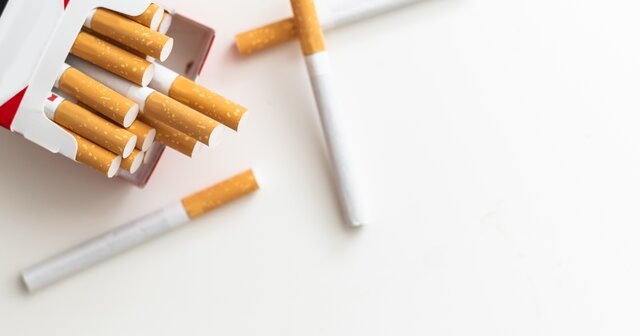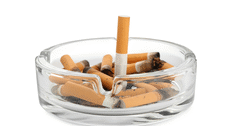

Politicians in the state of Washington are proposing a 66% increase in the cigarette excise tax as well as an outright ban on menthol cigarettes and other flavored nicotine products. More than a third of cigarettes currently consumed in Washington have been smuggled into the state. Imposing stricter, more costly laws is likely to increase that alarming figure.
We have studied cigarette excise tax evasion and avoidance, or what we call “smuggling,” for decades. In 2008 we developed a statistical model that measures state-to-state smuggling, and we update it annually. Our model reveals that nearly 37% of all cigarettes consumed in the Evergreen State through 2022 had been smuggled into the state. Washington has the fifth-highest rate of cigarette smuggling in our nation, behind Massachusetts, New Mexico, California and New York.
The idea of raising taxes on cigarettes and vaping products is becoming more popular. Michigan and Indiana, where the authors live, have seen proposals to do both. We’ve seen tax-increase efforts in Ohio, Rhode Island, Maine, New Jersey, North Dakota, Montana and now, Washington.
Washington State’s proposal is eye-catching mainly for its depth and breadth. Many states impose smoking sin taxes in the hope of curbing vice or raising revenue. But lawmakers and governors must not ignore the incentives for lawlessness excise taxes create by aiming to stamp out a habit that predates the American republic and has been in steep decline for decades.
We ran the impact of Washington’s proposed cigarette tax increase through our model, using only the $2.00 per pack increase and changing nothing else. It showed that the state’s smuggling rate would leap by 22 percentage points, to 59%. Washington would displace New York as the nation’s top spot for smuggled smokes.
We then ran the model to include Washington’s proposed ban on flavored favorites such as menthol cigarettes. Cigarette smuggling could be expected to leap to a point where illegal smokes account for 74% of the market. Legal cigarette sales would drop to just 41% of what they are now. The state treasury would suffer a net loss of $98 million.
Lawmakers should consider the experience of Massachusetts and California, two states that have raised taxes and imposed bans.
Massachusetts has been plagued by an illicit market for years. “The smuggling of untaxed tobacco products…remains a challenge,” the state’s Multi-Agency Illegal Tobacco Task Force reported in March 2024, That’s no surprise. Neighboring New Hampshire hasn’t banned flavored cigarettes, and its excise tax rate is nearly half that of the Bay State.
California has a ban on flavored cigarettes and vaping products. Despite this, people are still smoking menthols or minty flavored workarounds at nearly the same rate as before prohibition, according to the Washington, D.C.-based Tax Foundation. Not surprisingly, just last week five people in that state were indicted in an alleged smuggling scheme.
Consumers have agency. They respond to incentives by adjusting their behavior — not always in ways policymakers hope or plan. Washington residents who still smoke at today’s rate of $3.00-plus per-pack clearly have a very strong preference to do so. Raising the tax by 66% may be more likely to lead them to smuggle than to quit their habit.
It would be naïve for lawmakers to expect law enforcement to prevent the increase in illegal activity.
The state of Washington has trouble keeping narcotics out of its own prisons. Just last month there were smuggling-related arrests on three separate occasions at a single Washington State Prison. Two of the accused had admitted to smuggling previously.
Washington would need to become an Orwellian police state to thwart the illegal product that will pass its borders if it bans and increases taxes on cigarettes. Police already have their hands full, and not only with smuggling. High excise taxes can lead to corruption as well as violence against people, property and police.
We do not encourage smoking. Neither of us smoke cigarettes. If you do, you should stop. And lawmakers should make informed decisions. The state must weigh the proposed benefits and the often ignored but always real costs of making cigarettes more expensive.
Permission to reprint this blog post in whole or in part is hereby granted, provided that the author (or authors) and the Mackinac Center for Public Policy are properly cited.
Get insightful commentary and the most reliable research on Michigan issues sent straight to your inbox.



The Mackinac Center for Public Policy is a nonprofit research and educational institute that advances the principles of free markets and limited government. Through our research and education programs, we challenge government overreach and advocate for a free-market approach to public policy that frees people to realize their potential and dreams.
Please consider contributing to our work to advance a freer and more prosperous state.

Donate | About | Blog | Pressroom | Publications | Careers | Site Map | Email Signup | Contact